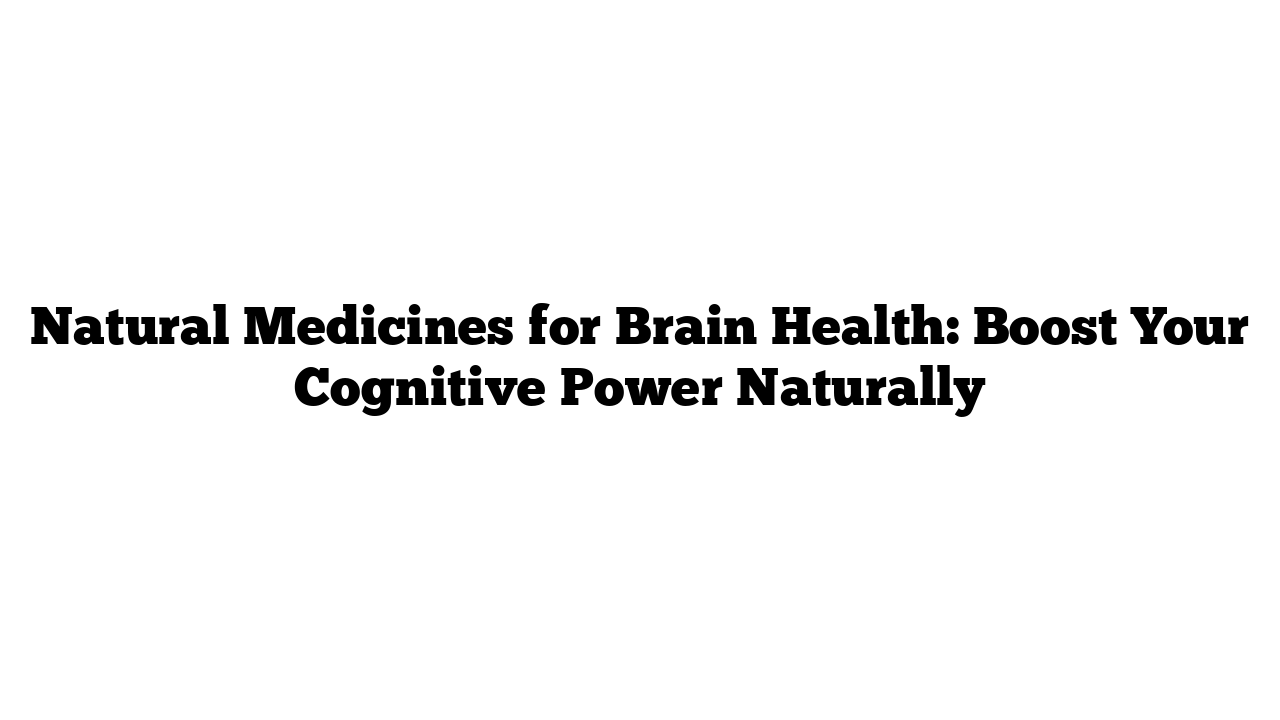When aiming to improve cognitive performance, it’s essential to recognize that brain health is influenced not just by neurological networks but also by our social interactions. The people we spend time with can shape our behaviors, thoughts, and even our character. This article explores six natural remedies for enhancing brain power, all encapsulated in the acronym MEDS RX.
The Power of Meditation
M stands for Meditation. Research shows that just 13 minutes of meditation daily for eight weeks can significantly enhance mood, focus, concentration, and working memory. Meditation serves as a vital reset for the brain, allowing us to consolidate information and convert short-term memories into long-term ones. Make meditation a non-negotiable part of your daily routine to unlock its benefits.
Key Benefits of Meditation:
- Improves mood and emotional regulation.
- Enhances focus and working memory.
- Reduces anxiety and stress levels.
Exercise: Move to Improve
E stands for Exercise. Engaging in physical activity is crucial for brain health. Exercise increases levels of brain-derived neurotrophic factor (BDNF), which nourishes brain cells and enhances cognitive function. A study from Cambridge University demonstrated that participants who exercised exhibited increased activity in the prefrontal cortex, resulting in improved cognitive performance.
Tips for Incorporating Exercise:
- Take short breaks to walk or stretch during work.
- Consider rhythmic activities like walking or cycling while listening to educational content to boost information retention.
Neuro-Nutrition: Fueling Your Brain
D stands for Diet (Neuro-Nutrition). Your brain is an energy-intensive organ, requiring specific nutrients to function optimally. Nutritional deficiencies can lead to cognitive decline and mood disorders. Eating a balanced diet rich in essential vitamins and minerals—such as Vitamin B12, B9 (folate), and zinc—can greatly benefit brain health.
Foods to Consider:
- Leafy greens and whole grains for folate.
- Fish and eggs for omega-3 fatty acids.
- Nuts and seeds for vitamin E.
Sleep: The Brain’s Recovery Time
S stands for Sleep. Quality sleep is vital for cognitive function. Lack of sleep impairs memory, decision-making, and overall brain performance. Aim for at least seven hours of sleep each night to support memory consolidation and clear out toxins that accumulate in the brain during waking hours.
Sleep Hygiene Tips:
- Create a relaxing bedtime routine.
- Maintain a cool, dark sleeping environment.
- Limit screen time before bed to improve sleep quality.
Relationships: The Impact of Social Connections
R stands for Relationships. Our social networks significantly influence our brain health. Surrounding yourself with positive, encouraging individuals fosters a growth mindset and enhances cognitive function. Studies indicate that strong relationships contribute more to happiness and health than diet or exercise alone.
Building Positive Relationships:
- Engage in community activities or groups.
- Foster relationships with those who inspire and motivate you.
Extras: Additional Practices for Brain Health
X stands for Extras. This includes various additional practices that support brain health, such as deep breathing exercises, getting sunlight, and maintaining hydration. These practices can be simple yet highly effective.
Extra Tips:
- Spend time outdoors to soak up sunlight.
- Practice deep breathing techniques to increase oxygen flow to the brain.
- Stay hydrated to support overall cognitive function.
Simple Actions for Brain Health
To incorporate these natural remedies into your life, start with one small change today. Ask yourself: “Is this good for my brain or bad for my brain?” Remember, small choices accumulate over time to create lasting habits.
By integrating these natural remedies into your daily routine, you can enhance your brain health, improve cognitive performance, and ultimately lead a more fulfilling life.
